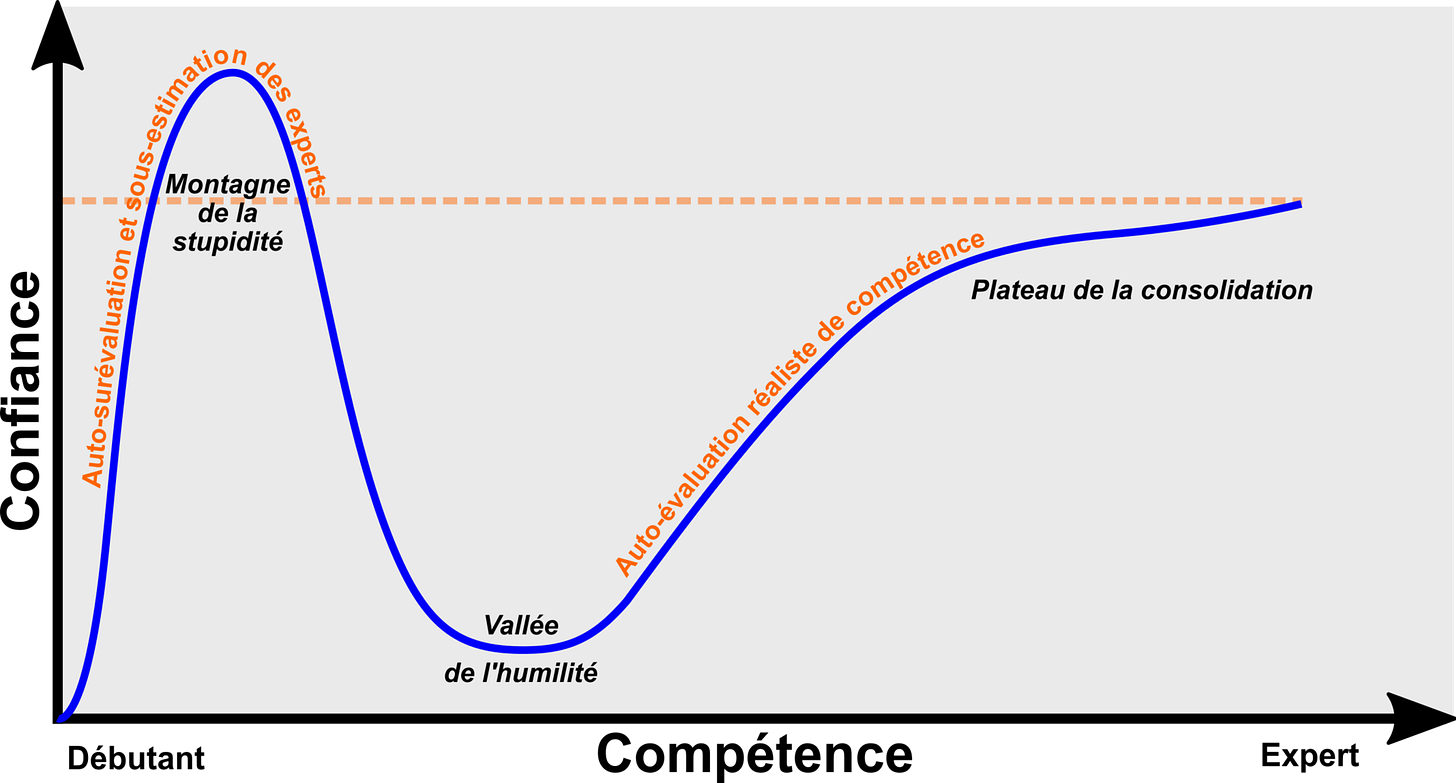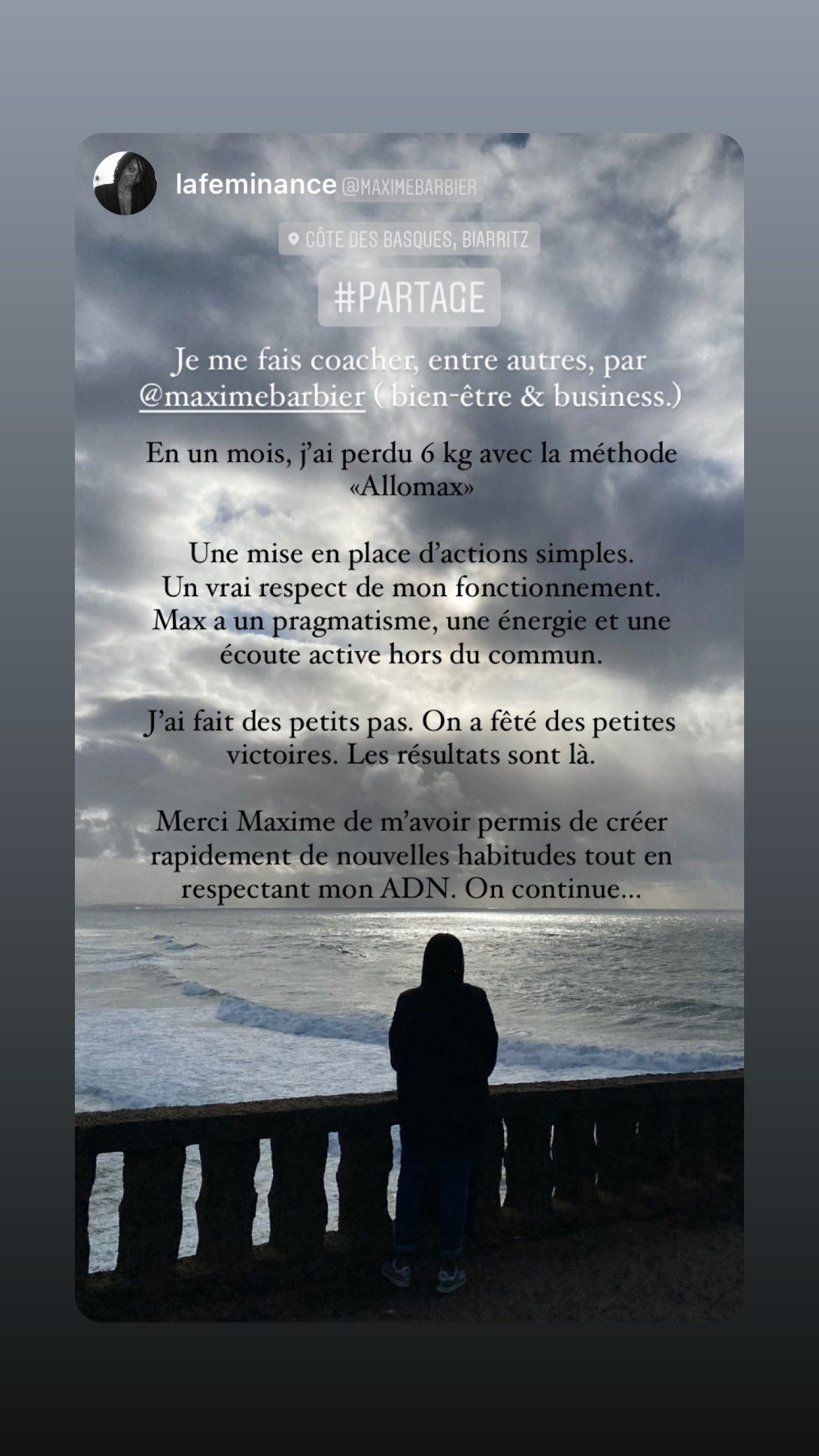Last night, we were all at a Mexican restaurant for a friend’s birthday. Her long time friends had come to surprise her. The evening was a great success on all levels. On the other hand, at the next table, two successive scenes happened that deeply marked me…
When we arrived, I found myself on the side of the table that gave me a view of the whole restaurant. Right in my field of vision, slightly to the left at 30°, was a table of two. On this table of two, was a young Mexican couple just in their thirties. He had his back to me, she was facing me.
As I started to look at the menu, my eyes were immediately drawn to the scene that was taking place at this table: two “lovers” with their eyes glued to their smartphones, their faces closed. This scene, you may say, is unfortunately more and more ordinary. I don’t know why, but I started to ” track ” the time they were going to spend without talking to each other.
5 minutes pass. 15 minutes pass.
Our appetizers arrive, we start to eat. The couple starts their main courses, still looking at their iPhone. 45min later, they have finished their dinner and get up. She leads the way, he follows her, still on his phone.
I was about to move on when another couple takes their place. Same age, same style. The menu being available on QR Code, each one takes out his phone. After (obviously) choosing, everyone goes back to the meanderings of their phones. I see the young man’s screen: instagram, then twitter, then whatsapp, then re-instagram, then re-whatsapp… an endless loop.
This 2nd couple will also leave before us. They will have spoken only when the young woman took a picture of her food and asked her boyfriend to smile to be on it.
We have all seen this scene hundreds of times before. We pay less and less attention to it, so much it becomes common. Except that last night, this scene connected with another event of my day.

I am currently reading (sorry… devouring!) the latest book by Jordan B. Peterson “Beyond Order”. His previous book “12 rules for life” was in the TOP5 of my reads of the year 2020 (see the list). His writing style is still very dense and powerful.
The chapter entitled “Plan and work diligently to maintain the romance in your relationship” caught my attention for many reasons (some of them personal of course). Mostly, there was a connection while watching these two sadly symmetrical scenes.
Yes, I am a 36 year old single nomad
I’d like to share my perspective on this. But before I do, I’d like to make it clear that yes, I am a 36-year-old single nomad, so I’m not really qualified to give advice on relationship management. And you are probably right. On the other hand, my #AlloMax method works for 100% of the subjects, and I think it can also be applied here.

Throughout the chapter, Jordan B. Peterson explains how to save your marriage (or relationship) by following one of his 12 new commandments: “Plan and work diligently to maintain the romance in your relationship”.
He begins with a “numbers” perspective that immediately clicked with me. It echoes my method of small successes and the importance of measurable goals. And yes, it is entirely possible to have measurable goals even in love.
Assume you are married—or the equivalent. Assume, as well, that you have, or could have, a romantic interlude twice a week. It may be less; it may be more: but we will do the arithmetic for twice weekly. That is a hundred times a year. Let us imagine that you are going to be married thirty more years. Thirty times one hundred is three thousand times. Is there not some possibility that you could devote a fraction of all that time to perfecting your technique, seduction, communication, and lovemaking? What does it matter, therefore, if you have fifteen miserable dates before managing one that verges on acceptable? That is fifteen times out of a possible three thousand. That is half a percent of the romantic time you could possibly spend together. Maybe you could dare even more to determine if things could be set right between you. Why would you possibly assume that something as complex as maintaining a marriage could be managed without commitment, practice, and effort?
This ties in with my previous reading of the book Factfulness: Ten Reasons We’re Wrong About The World, which made me realize the importance of never appreciating a number by itself. Always divide it by something or compare it to another number.
If our relationship is at a standstill (“dead center”), if every moment together is a shooting war zone, then the idea of spending 2 romantic dinners alone per week may seem insurmountable (or unnecessary). But if we multiply this number by the number of years we are supposed to spend together, then this same number becomes ridiculous (see the example of Jordan B. Peterson)
Of course, it all depends on the vision that one has for one’s couple, but from what I see around me (and I am the first), when one is in a couple, one is (normally) in the idea of a “long term” projection, even “our life together” or even “until death do us part” (cf. the marriage vows).
The power of the “everyday repetition”
I find his approach relevant because it forces us to ask the right question by putting into perspective the power of the repetition of daily life (in a couple). If you live together, for example, then your spouse will wake up with you every day. Just as, every night, you will have dinner in front of her.
What may seem like a trifle to you, a subject “not important enough” to bring up at the time, can turn into an incurable cancer if multiplied by 365,000 times (10 years of relationship).
The right question is finally (maybe) the following: in view of the incredible repetition of the daily life that awaits our couple, knowing that each day that passes amplifies the problem, isn’t it time to change the trajectory?
The answer may be a firm “no” and, in that case, we must have the courage to face the issues rather than ending up “crushed under excess baggage”.

If you pile up enough junk in your closet, one day, when you are least prepared, the door will spring open, and all of what has been packed inside, growing inexorably in the darkness, will bury you, and you may not have enough time or energy left in your life to confront it, sort through it, keep what you need, and discard the rest. This is what it means to be crushed under excess baggage.
If the answer is “yes”, then it is appropriate to make the necessary effort to make it work. And “going on a bi-weekly date” to save your relationship (which is supposed to last 1 or 2 decades) seems like an “acceptable” effort.
Jordan B. Peterson continues his chapter by explaining that, as with anything, the beginning is necessarily complicated. When you want to start working out again, for example, you sometimes have to (re)start by “walking 500m”, to then be able to “walk 5000m” to then be able to “run 5000m” (and thus lose all the excess weight that is dangerous for your life expectancy).
“So maybe the first date is wretched and horrible. You never want to repeat it but you do, because you would rather save your marriage than quit outright. And maybe the next one is five percent better. And maybe after some repeated attempts you remember for at least a brief moment why you once liked the person you married. Perhaps you manage something a little more exciting than putting your arm around him or her, and perhaps receive a bit of a response from someone who actually cares for you somewhere in their now cold and shriveled heart. And if you are in it for the long run, as indicated by the original marital vows, perhaps you will put in the time to get it right.”
We find here the idea of the “1% better everyday” (one of the pillars of my #AlloMax method). I talked about it last month in the newsletter “You can’t imagine what you can accomplish with 2% of your day”.
Of course, the hardest part is to keep the rhythm of the bi-weekly appointment. At the beginning, everything can push you to give up, especially if you start from very far. At first, you think you know everything, that it is doomed to failure and that it is better not to waste your time.
A bit like when you discover a new sport
At the beginning, we are confident about what we know, but little by little we realize that in the end, we don’t know, to finally consolidate the experience and see the real results.
This reminds me of the Dunning-Kruger effect, also called the overconfidence effect (see graph). It is a cognitive bias by which the less qualified in a field overestimate their competence at the beginning.

CONCLUSION
The reading of the chapter + the two couples in the restaurant made me realize the importance of the trajectory, whether it is in a couple or on another subject. A small grain of sand today, is not serious in itself, but accumulated at the rate of 1 time per day over several years, it quickly becomes a mountain.
If your couple is at a standstill, you can choose to make it sink a little more each day in the darkness, until the point of no return, or decide today to set up a system to start again in the direction into the light (ex: the 3000 romantic dinners)
It’s the same thing for your overweight (a topic I deal with a lot with my #AlloMax clients). It’s not last night’s bag of chips that’s the problem, it’s the 150 bags of chips per year.
You can decide right now to start exercising a little more, at the rate of 1% per day. Maybe your first step is to simply walk around your house. But if you increase the distance a little more each day, after a while you will become “active”, then “sporty” and why not “athlete”!
I would like to end this newsletter with the example of Nelly (@lafeminance), a client who has trusted me for the last 4 weeks. We started with a few minutes of walking to create a new (good) habit. Seeing her success (strategy of small victories), she felt confident to increase the distance.
Today, she walks 5km every morning, with 300 steps to climb. Something impossible for her at the time, but now possible thanks to her 6 kg less weight!















 #DailyMaxChallenge: 30 days to get out of your comfort zone
#DailyMaxChallenge: 30 days to get out of your comfort zone